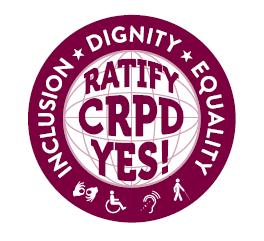Bond v. United States Decision Ruled Irrelevant to Ratifying Disability Treaty (CRPD)
June 10, 2014

|
On June 2, the United States Supreme Court issued its ruling in the case of Bond v. United States. The ruling supports what disability advocates and legal scholars have long contended: the Bond case is irrelevant to the process of ratifying the Disability Treaty, a treaty inspired by US leadership and designed to promote the human rights of people with disabilities.
The Bond case involved a challenge to a federal statute implementing the Chemical Weapons Convention, which was enacted after that Convention was negotiated. By contrast, the Disability Treaty is modeled on the Americans with Disabilities Act, which was passed by Congress long before the Disability Treaty was ratified, so the U.S. is already in a position to comply with the obligations of the Disability Treaty under existing laws that were passed entirely independently of the convention. Unlike with the Chemical Weapons Treaty, no new legislation is necessary for the U.S. to comply with the Disability Treaty. The Supreme Court's unanimous decision, the Chief Justice's opinion, and Bond all affirm that Bond is not an impediment to the ratification of the Disability Treaty.
AUCD believes that ratification of the Disability Treaty will allow the U.S. to continue our global leadership on disability rights. We urge the Senate to continue the bipartisan tradition of supporting the disability community by uniting in support of ratification of the Convention on the Rights of Persons with Disabilities and putting it up for a vote in the Senate Foreign Relations Committee, paving the way for full Senate ratification.
About AUCD
AUCD is a national network of 67 University Centers for Excellence in Developmental Disabilities (UCEDDs); 43 Leadership Education in Neurodevelopmental and Related Disabilities (LEND) programs; and 15 Intellectual and Developmental Disabilities Research Centers (IDDRCs), all providing cutting edge expertise and training around issues affecting people with developmental and related disabilities. For more information and directory of University Centers, see www.aucd.org.
For more information on the Disability Treaty, visit http://www.disabilitytreaty.org/.
###







